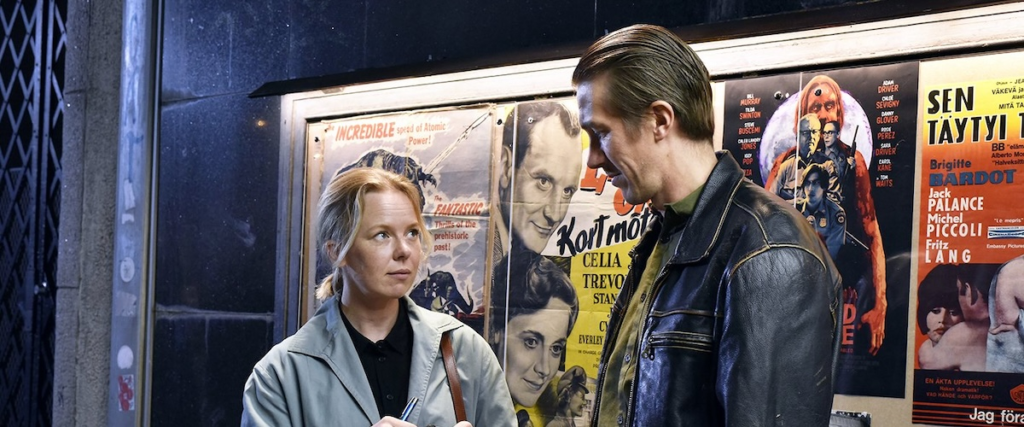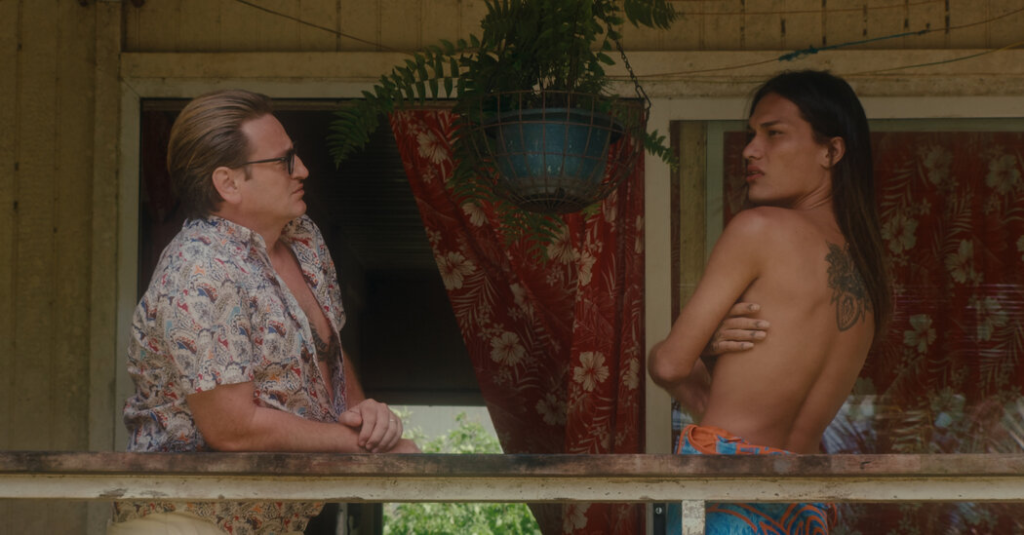Anyone who says 2023 wasn’t a good year in film hasn’t seen enough of them. The 2020s have been an excellent decade so far, cinema-wise. Each year that passes, we get more surprises from directors on the rise, as well as those returning to filmmaking after a brief or lengthy hiatus. All of the projects in this list are directed by filmmakers whom I have held in high regard since I first saw one of their pictures, with the exception of one who has directed an astonishing debut. These directors are just unique in every sense of the word – crafting visionary and powerful pieces of work, some of which I believe will stand the test of time. From Laura Citarella’s Trenque Lauquen to Jonathan Glazer’s The Zone of Interest, I have compiled a list of films that not only were my favorites of the year but also that I consider some of the most creative and well-orchestrated pieces of cinema delivered to us this year.
So, let’s get things rolling; here are my top 10 films this year (without including some of the festival hits that haven’t been formally released). Some honorable mentions: Showing Up, May December, Totem, Asteroid City, and R.M.N.

10. Infinity Pool (Dir. by Brandon Cronenberg)
Starting things off, the number ten spot goes to Brandon Cronenberg’s madhouse of depraved and campy delights, Infinity Pool – a great companion piece to his previous feature, Possessor, and the latest project to take down the privileged class in a satirical manner, accompanying The White Lotus and Triangle of Sadness, but with a horror-induced twist. Its panoply of sadism, fixation, dominance, and sex conjures several provocative scenarios where desires run amok in ways that Alexander Skarsgård’s character doesn’t expect. Brandon Cronenberg has made sure to follow his old man’s steps (David Cronenberg – my favorite director of all time) while still pursuing his style. It is definitely not everyone’s cup of tea, as this luscious madhouse is all for the sickos. However, Infinity Pool is as creative and ingenious as it gets when it comes to modern horror filmmaking. Brandon Cronenberg is slowly becoming one of those directors that genre fans can rely on to deliver unique, bizarro experiences.

9. De Humani Corporis Fabrica (Dir. by Lucien Castaing-Taylor, Véréna Paravel)
Arriving with the tagline “the human body as you have never seen it before”, Lucien Castaing-Taylor and Véréna Paravel deliver one of the most fascinating and extraordinary showcases of the intertwining beauty and horror inside the human body with De Humani Corporis Fabrica. In the past, Castaing-Taylor and Paravel have received plenty of comments regarding their “provocative” images in their various documentaries, particularly Caniba. But their latest one will take you even more off guard as it shows the fragility of our bodies – going from x-rays to the operating table – by having the camera close to the overworked doctors and nurses doing their life-saving duties. So, for those who are easily provoked or don’t like graphic stuff like C-sections and dissected breasts to open-back surgeries, this isn’t going to be for you. This type of film makes everyone question the limits of what a documentary can be.

8. Afire (Dir. by Christian Petzold)
Christian Petzold, one of Germany’s best current directors, has crafted a sentimental and occasionally hilarious tragicomedy in Afire (Roter Himmel) – a film that can be considered a modernized version of Pier Paolo Pasolini’s masterpiece, Theorem, including the ash that comes falling from the skies as a sign of psychological underpinnings taking place in the narrative. Misfortune and hopefulness are all over Petzold’s grand picture, where two characters – opposite of each other – reflect on the impact a specific person can have on your life for better or worse. It’s pretty simple stylistically, yet metaphorical in its touching dialogue sequences, specifically its final one. It took me a while to actually love this film altogether. But after watching three times throughout 2023, I found some relatable factors within the characters that actually moved me the more I watched.

7. Fallen Leaves (Dir. by Aki Kaurismäki)
I absolutely love Aki Kaurismäki. The Finnish filmmaker holds a special place in my heart because of how his pictures make me feel. He is the curator of some of the most humility-filled and charming cinema in the past couple of decades, maybe even in history. He often makes the same movie with a different twist in the character dynamics and interactions. But, in his latest one, Fallen Leaves, Kaurismäki offers his most heartwarming and emotional pairing yet, lifted by the performances of Jussi Vatanen and Alma Pöysti. The late addition to the director’s Proletariat Trilogy (alongside Shadows in Paradise, Ariel, and The Match Factory Girl) is lifted by the feeling of finding that particular person who brightens your day even in the bleakest emotional status. And many of us went through that sort of situation during the transition period between the pandemic and now.

6. Past Lives (Dir. by Celine Song)
One of the best directorial debuts of our generation and a heartbreaking portrayal of modern love and isolation is Celine Song’s intimate and delicate Past Lives. Spanning three decades and two countries, Song’s film resembles Richard Linklater’s Before Trilogy. However, unlike the aforementioned series of films, it subverts people’s romantic fantasies in exchange for a more honest view of why people choose to live in a constant state of “what if”. It explores the irreversibility of time, a pet topic for the post-pandemic era, through piercing conversations that feel so authentic that it makes you feel like the director went through similar scenarios. The experience of watching this in a theater full of people sobbing their eyes out was one to remember – everybody being moved to tears by the power of cinema. In terms of emotion, no other film beats Celine Song’s.

5. Priscilla (Dir. by Sofia Coppola)
Sofia Coppola takes some of the atmospheric elements from her previous films, such as Marie Antoinette and The Virgin Suicides, to adapt Priscilla Presley’s autobiography, Priscilla. Coppola creates a twisted fairytale that explores the innocence, love, and melancholy a young woman experiences in and out of the spotlight of the King of Rock n’ Roll’s stature. Like most of her filmography, it contains a dreamy and enchanting look that’s alluring. But unlike them, there’s more darkness prevalent in the fairytale box set in which Priscilla, played by an astonishing Cailee Spaeny (my favorite performance of the year), inhabits. Combined with the excellent attention to detail in its techs (costumes, production design, and makeup), these elements wash over you at different lapses and raise many emotions. In my opinion, Priscilla is one of Coppola’s most polished works and possibly her best one to date.

4. Trenque Lauquen (Dir. by Laura Citarella)
One of the most overlooked films of the year is Laura Citarella’s new project, Trenque Lauquen. The film, divided into twelve chapters and two movies, takes a visualized novel approach to unravel its existential questions like a matryoshka doll. It makes us question our place in the world – the missing pieces in our lives. Citarella fills her film with equal amounts of sympathy and melancholy, making each story beat flourish. This is one of the most controlled and orchestrated narrative-focused projects of the decade so far. Trenque Lauquen might unfold in a way that causes some viewers to lose patience with them. Still, those interested in being rewarded with a puzzle-like experience of contemplation will be hooked by Citarella and Laura Peredes’ surprising feat.

3. Godland (Dir. by Hlynur Pálmason)
With a directorial hand fueled by atmospheric dread and the simmering active volcano in the background of the Icelandic setting, Hlynur Pálmason delivers a demanding and utterly fascinating grim story about a colonizer’s toxic vanity in Godland. Since its festival run last year, I have been talking about this film and its poetic exploration of religion, sacrifice, and apostasy. His style is similar to that of Werner Herzog and Theodor Dreyer, where Pálmason inclines on using the abrasiveness of the film’s pacing and location to his favor. It feels muscular yet elegiac – ravishing the viewer as one beautiful composition transitions to another, captured by the best cinematographer working today, Maria von Hausswolff. It requires plenty of patience as it goes through its motions in a slow and brutal manner. But those willing to take time to bask in it will be treated with a magnificently crafted feature from one of the most interesting new directors on the rise.

2. Pacifiction (Dir. by Albert Serra)
Albert Serra gives us his most accessible film with Pacifiction, but, on the other hand, it has his self-stylized, pretentious demeanor that fans of his work love. This is a Twin Peaks episode, but instead of having a detective story about a murder in the middle of it, a man is descending into madness because of military conspiracies. It is ridiculous and occasionally baffling, but I absolutely loved it. The characters have conversations about philosophy and politics, as well as how the two intertwine with one another in a manner that seems entirely odd. You can’t pinpoint their responses’ mood or tone, which puts the viewer in a constant wave of emotions. Pacifiction is the strangest experience you might have this year because of how Serra orchestrates it all with a dreamy and melancholic haze covering the beautiful landscapes, mesmerizingly shot by cinematographer Artur Tort. If you want to see the most intentionally absurd project of 2023, watch this one immediately.

1. The Zone of Interest (Dir. by Jonathan Glazer)
I don’t know what else can be said about Jonathan Glazer’s bone-chilling and distressing masterpiece, The Zone of Interest. The master’s vision is in his most distinctive and experimental version, breaking the mold of what we’d expect from war films and presenting us with something so horrifyingly original that just leaves you in complete awe by the craft and horrified by putting us face to face with the banality of evil. Every aspect – the haunting sound, Mica Levi’s ambient score, the Łukasz Żal’s astonishing cinematography, just to name a few – is detailed and adds to the experience. There’s not a single beat missed by everyone involved. Once you watch it, you won’t stop thinking about it. And that is a fact.





